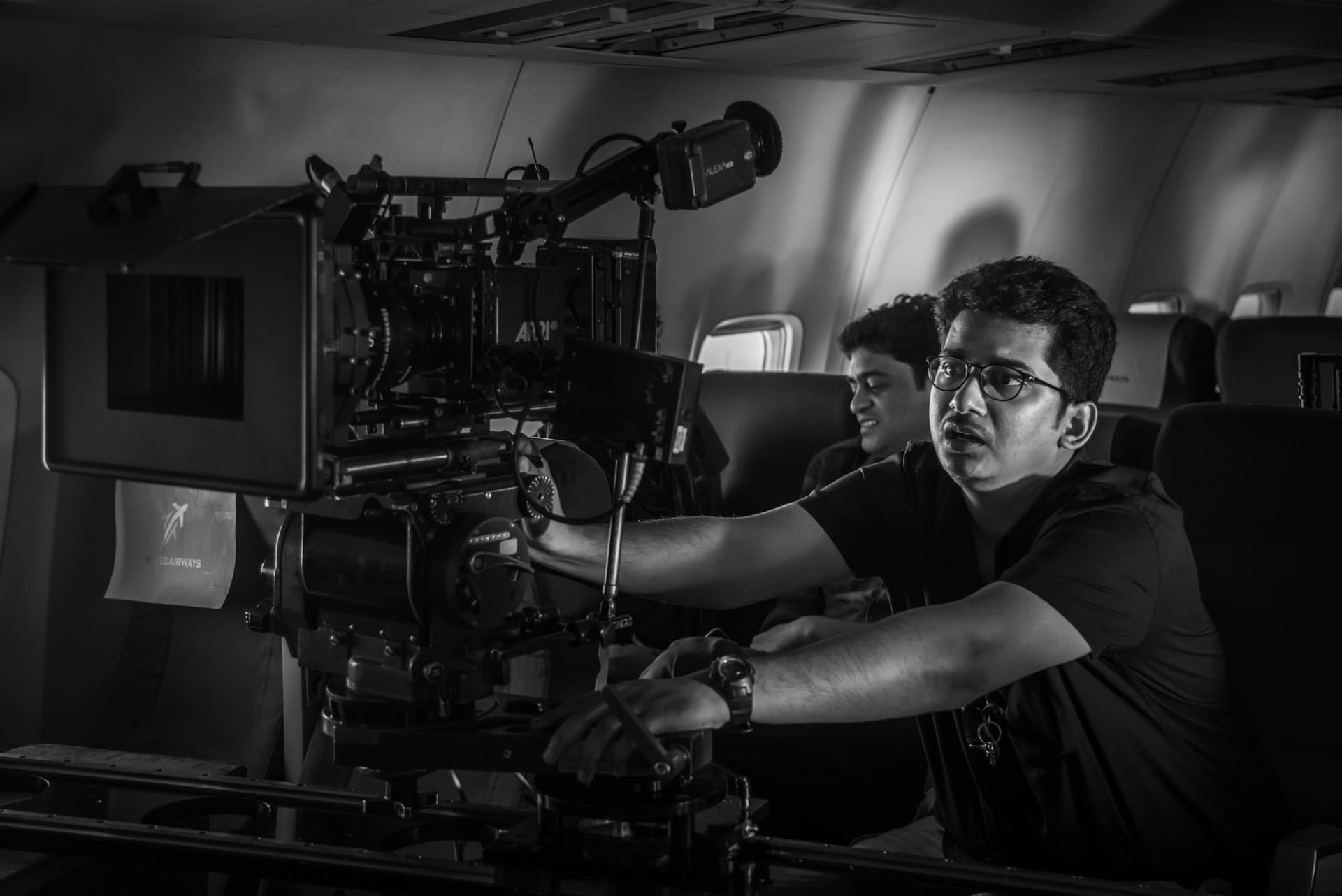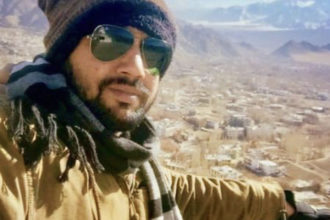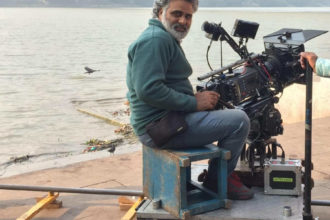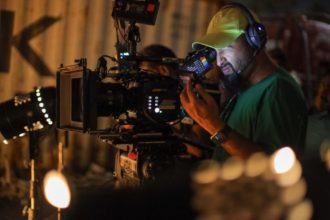As a child what were your early influences towards cinema?
During my childhood, I did not have many opportunities to watch films. With no television at home, our options were limited. However, the Kolkata Film Festival, which began in the mid-1990s, curated exceptional films every year, and my mother would take me to watch them. It was during these festivals that I was introduced to the works of Mr. Satyajit Ray very early, which we could watch as children like the ‘Goopy Bagha’ and ‘Feluda’ series. I have vivid memories of watching Steven Spielberg’s ‘The Jurassic Park’ in a cinema hall. As I grew older and went to high school, I began to explore mainstream Indian cinema. It was only later, when I joined film school, that I discovered the world of international cinema.
How did you first become interested in cinematography? Did you start with photography?
Yes, technically, I did start my journey with photography. My father was an amateur photographer who owned a camera, and I would often watch him take pictures. During my high school days, I borrowed my father’s camera and with the help of a friend who had access to dark rooms, we began experimenting with developing photographs. However, I realised that movies were the supreme form of art when it came to storytelling. This realisation led me to explore cinematography as a means of starting my journey in filmmaking.
What steps did you take to train yourself?
Entering art school was a life-changing experience that left me feeling liberated and invigorated. Despite the fear and uncertainty of leaving my home and starting anew in an unfamiliar city, I found that it helped me to focus and commit to my pursuits. The program was rigorous and demanding, but I was grateful for my prior education in physics and mathematics, which proved to be helpful in understanding the principles of optics and imaging. Our exercises involved shooting on celluloid, which instilled us with confidence. Film stock was expensive and that in turn, gave us a sense of responsibility and accountability. Every day felt like waiting for report cards outside the labs, knowing that each exposure was a chance to excel or falter. Overall, my experience at Whistling Woods was an unforgettable journey of growth and self-discovery, and I will always cherish the memories and lessons I gained from it.
Have you assisted anyone? How does it help one?
Yes, I assisted Mr. Bijitesh De for 5 years after passing out from film school. It helped me a lot but having said that every person’s journey is unique. I was out of my institute and looking for work; I made calls to every person I could reach out to. It took almost about a year before I could start assisting on a regular basis. Fortunately for me I could do a lot of projects with him and learn so much of what I am today as a professional. It helped me understand the industry, the people and how to navigate through them. What film schools cannot teach is how to get things done in the real world. Man management and negotiation techniques are often underrated.
How did your first film project come about?
The first project always comes from a special person who trusts you more than your reel. A very dear friend of mine called me and said, “I am directing my first project and I want you to shoot it for me”. Unfortunately I was an assistant on a job scheduled outside India and I could not leave that and go. I felt so terrible that I couldn’t do it. A few months later, when I had decided to move on from assisting, I got another call from the same person and there it was, my first job as an independent cinematographer.
What is perhaps the most important factor for you to choose a script?
I consider multiple factors before deciding to work on a project. The script or the story is crucial, but I also place significant importance on the people behind the making of the script. Since I believe there are only so many stories in this world, so how you tell them can make all the difference. So it is very important for me that I am able to comprehend the vision of the creators and the core crew. Finally it’s the evaluation of these factors along with the rewards and risks.
Is cinematography intuitive or is it something you learn?
To me cinematography is a combination of intuition and learned skills, and the balance between the two depends on the artist. While having an eye for composition and understanding the psychology of colours are the intuitive aspects of cinematography, optimising exposure, optics, shutter angles, and lighting fixtures are skills that can only be learned through education, training, and experience. Cinematography is about using technical tools to tell a story that connects with audiences on an emotional level. I think the quest of any cinematographer is to blend both their intuition and technical skills seamlessly.
Tell us something about your latest film.
I recently worked on a short film titled “Hurdung” with director Alok Dwivedi. The film has been well-received by audiences as it makes its way through the festival circuit. We shot the film near Delhi, using real spaces to our advantage, which provided great inspiration for our lighting and camera work. The ensemble team included talented actors and a fantastic crew. Together we explored unconventional treatments that perfectly complemented the mood of the story. The tension and drama really comes alive inside those walls. Like every short film we had to contain ourselves in a budget and keep things minimalistic but when I look back I don’t think we could have done this any better.I’m excited to hear what audiences think of the film and invite everyone to check it out for themselves.
Where do you seek inspiration from?
Inspiration has a way of finding you when you least expect it. For me, the changing of seasons is a boundless source of creativity. Additionally, films, paintings, sculpture and music all contribute to shaping my imagination but on a very subconscious level. But what’s been consciously exciting lately is discovering the world of Manga comics. I’ve been blown away by this approach to visual storytelling.
What is in the kitty right now?
My steam has always been my advertising jobs which I truly cherish. I have a few commercials lined up now. However I may have to wait a little while till my next feature film takes off. But when it does it should be all worth the wait. When I look around, there is a clutter of projects and I feel its important to keep calm and choose the right one.
What’s your dream project?
Expressing my dreams is a challenging task, as they are often deep and personal. I desire to find work that makes me rich and also fulfills my soul. I believe that is not a destination, but rather a journey towards self-discovery and growth.
Your most memorable blunder?
I had just started working as the first assistant and we were shooting for a commercial. I overslept my alarm and my phone was still on silent from last day’s shoot. When I woke up, I saw around a dozen missed calls and I was almost 4 hours late. I didn’t have the courage to call back, I landed on set thinking that I had lost my job. I went up to my DP and apologised without any excuses. He softly asked me to take it forward from there and not be late again. I have never showed up late to work, whether it was before or after that day.
Any advice to the inspiring cinematographers?
I would like to pass on two important pieces of advice I received from my teachers. One was to keep going at it, no matter what, because that is what makes a man successful more than anything else. Another beautiful thing I learned was that every job is good, so do not refuse it unless you have something better in hand.
What book, music, movie are you enjoying right now?
I have just started exploring Manga and other comic book styles for their visual styling. I am also exploring Mandala art, something I wasn’t very aware of. The symmetry and the calmness is very satisfying.
Riju Samanta’s IMDB profile is here.




